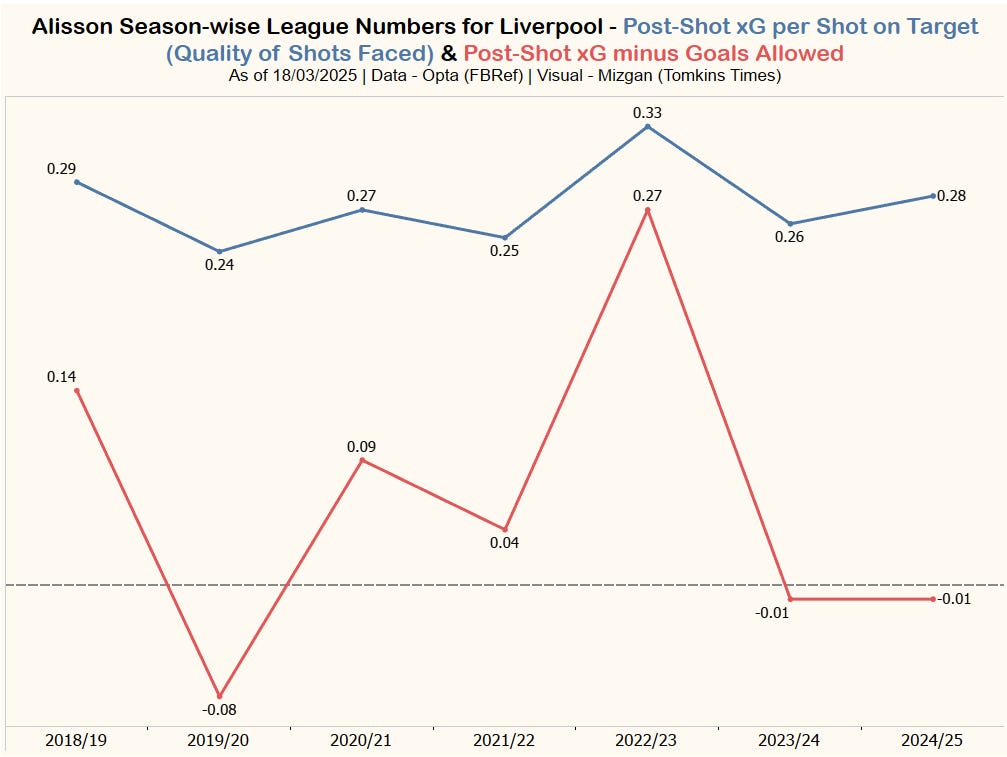Alisson Becker: The Epitome of Consistency in a Liverpool Shirt
… Should not be sold in the summer
Written on 20/03/2025, all the goalkeeping data from Opta (FBRef)
When Liverpool signed Giorgio Mamardashvili last summer, the prevailing belief was that he was part of a long-term succession plan to eventually replace current number one, Alisson Becker—either next season or in 2026/27.
However, to his credit, Alisson has remained unfazed by this and has continued to perform at his usual high standards. The Brazilian has been in excellent form throughout the campaign. While an injury sidelined him for a couple of months, he has arguably been back to his best since the start of 2025.
There have been ongoing debates about whether the former Roma stopper is not just Liverpool’s greatest goalkeeper but also the best the Premier League has ever seen (Petr Čech and Peter Schmeichel would like to have a word). While some may argue that Ederson is the best in passing and distribution, Alisson is superior in shot-stopping and commanding his area—an aspect of goalkeeping that is more important, especially at key moments in big games.
In this article, we will analyse Alisson’s numbers not just for this season but also look at his progress chart over the years at Anfield and compare him to some of the best keepers of the modern era.
Initially, we examine his progression throughout the years at Liverpool and the manner in which he has maintained consistency in several key metrics.
There has been much talk about Alisson’s availability, which has been a concern since the start of last season. However, before that, he had an excellent record in this metric for three years. It was during the title-winning season that he suffered a muscle injury, causing him to miss the first two months of the campaign.
It’s a significant trade-off—the former Roma keeper performs so well when fit that it’s difficult to argue that his relatively underwhelming availability (by goalkeeping standards) should prevent him from continuing at Anfield for a few more years.
A save percentage above 70% is considered elite for a goalkeeper who isn’t facing more than five shots on target per 90. In fact, after an increase in the latter over the past two seasons, it has decreased this time around. Therefore, even though the save percentage is down by 2% this season compared to last, the overall numbers remain consistent.
Post-Shot xG (+/-) [PSxG +/-] quantifies a goalkeeper's over- or underperformance in shot-stopping, while Post-Shot xG per shot on target measures the quality of shots on target the keeper faces.
Keep reading with a 7-day free trial
Subscribe to The Transfer Hub to keep reading this post and get 7 days of free access to the full post archives.






